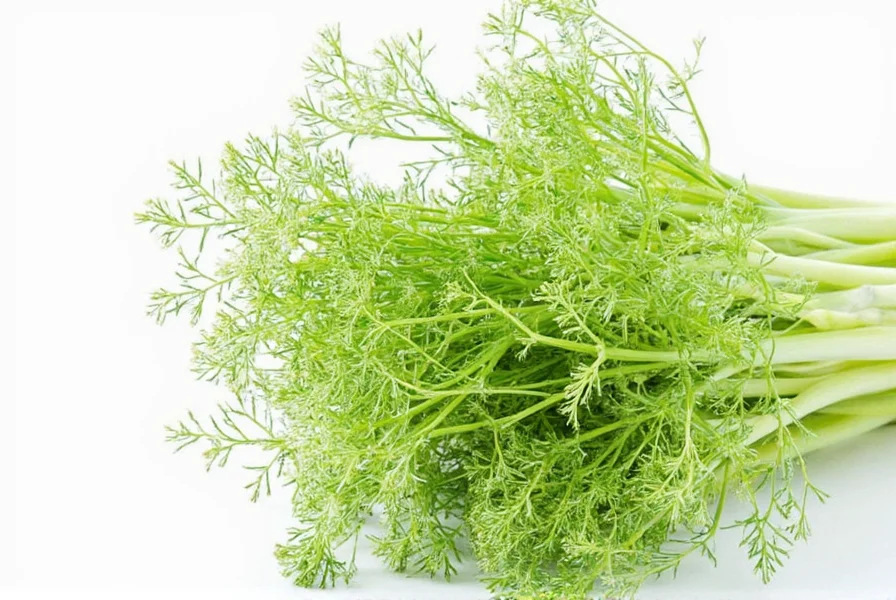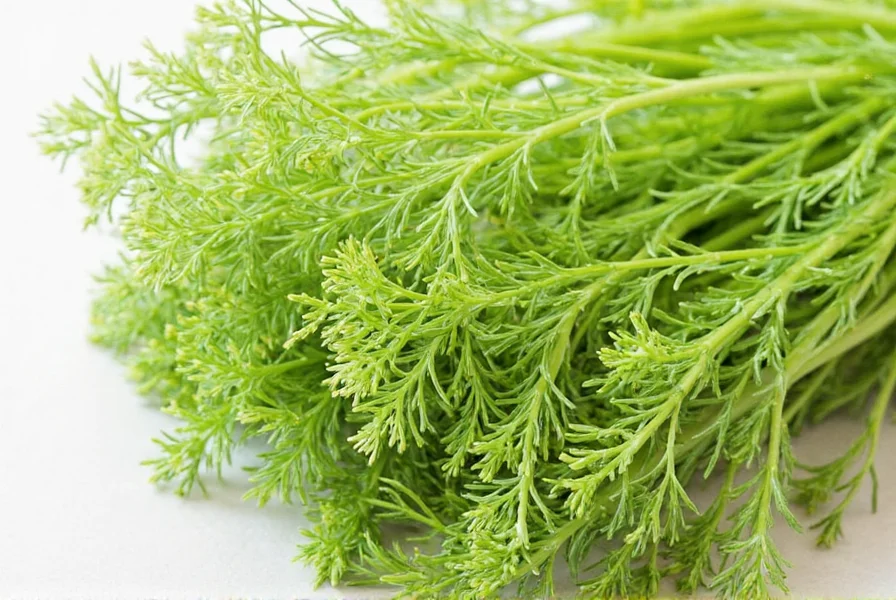Fennel (Foeniculum vulgare), a flowering plant in the carrot family, has been used for centuries in traditional medicine and culinary practices across Mediterranean and Asian cultures. Modern research confirms many of its therapeutic properties, making it a valuable addition to a health-conscious diet. This comprehensive guide examines the evidence-based benefits of fennel, separating scientific fact from folklore while providing practical usage recommendations.
Nutritional Profile of Fennel
Understanding fennel's nutritional composition explains its wide-ranging health effects. Both the bulb and seeds contain beneficial compounds, though in different concentrations. The bulb serves as a low-calorie vegetable rich in vitamins and minerals, while the seeds contain higher concentrations of essential oils and phytochemicals.
| Nutrient | Fennel Bulb (100g) | Fennel Seeds (100g) |
|---|---|---|
| Calories | 31 kcal | 345 kcal |
| Dietary Fiber | 3.1 g | 39.8 g |
| Vitamin C | 12 mg (20% DV) | 21 mg (35% DV) |
| Potassium | 494 mg (14% DV) | 1694 mg (48% DV) |
| Calcium | 49 mg (4% DV) | 1196 mg (120% DV) |
| Iron | 0.7 mg (4% DV) | 18.5 mg (103% DV) |
The key bioactive compounds in fennel include anethole (responsible for its distinctive licorice flavor), flavonoids, phenolic compounds, and volatile oils. These components work synergistically to produce fennel's therapeutic effects.

Science-Backed Health Benefits of Fennel
Digestive Health Improvement
Fennel's most well-documented benefit relates to digestive health. Multiple clinical studies demonstrate that fennel seed oil effectively reduces symptoms of irritable bowel syndrome (IBS) and infant colic. The compound anethole acts as a natural antispasmodic, relaxing gastrointestinal muscles and reducing bloating and gas.
Research published in the Journal of Alternative and Complementary Medicine found that fennel seed oil capsules significantly improved IBS symptoms in 65% of participants compared to 22% in the placebo group. For nursing mothers, fennel tea consumption has shown potential to increase milk production while reducing colic symptoms in breastfed infants.
Anti-Inflammatory Properties
The flavonoids and phenolic compounds in fennel demonstrate significant anti-inflammatory effects. Studies indicate that fennel extract inhibits inflammatory pathways by reducing levels of pro-inflammatory cytokines like TNF-α and IL-6.
Regular consumption of fennel may help manage chronic inflammatory conditions such as arthritis. A 2020 study in Phytotherapy Research showed that fennel extract reduced joint swelling and pain in animal models of arthritis, suggesting potential benefits for human inflammatory joint conditions.
Antioxidant Protection
Fennel ranks highly on the Oxygen Radical Absorbance Capacity (ORAC) scale, indicating strong antioxidant capacity. The bulb contains quercetin and kaempferol, while the seeds contain rosmarinic acid and other potent antioxidants.
These compounds neutralize free radicals, reducing oxidative stress that contributes to chronic diseases including heart disease and certain cancers. Research in the Journal of Food Science demonstrated that fennel extract significantly protected cells from oxidative damage in laboratory studies.
Hormonal Balance Support
Fennel shows promise in supporting hormonal health, particularly for women. Studies suggest that fennel may have mild estrogenic effects, potentially helping to alleviate menopausal symptoms and regulate menstrual cycles.
A randomized controlled trial published in Complementary Therapies in Medicine found that women who consumed fennel extract experienced significant reductions in menopausal symptoms compared to the placebo group. The research indicates fennel may serve as a natural alternative for women seeking non-hormonal management of menopausal discomfort.
Respiratory Health Benefits
Traditional medicine has long used fennel for respiratory conditions, and modern research supports these applications. Fennel's anti-inflammatory and antimicrobial properties make it effective against coughs, bronchitis, and other respiratory infections.
The essential oils in fennel act as natural expectorants, helping to clear mucus from the airways. A study in BMC Complementary Medicine and Therapies confirmed fennel's effectiveness in reducing cough frequency and severity in children with respiratory infections.
Practical Applications: Incorporating Fennel Into Your Diet
Both the bulb and seeds offer distinct benefits and culinary applications. Here's how to maximize fennel's health potential:
Culinary Uses of Fennel Bulb
- Raw in salads for crunch and mild anise flavor
- Roasted to enhance natural sweetness
- Grilled as a side dish
- Added to soups and stews for depth of flavor
- Used as a base for fish dishes
Using Fennel Seeds Effectively
- Brew as tea: Steep 1-2 teaspoons of crushed seeds in hot water for 10 minutes
- Add to breads, crackers, and baked goods
- Use in spice blends for meats and vegetables
- Chew whole seeds after meals for digestive benefits
- Make fennel water by steeping seeds overnight

Safety Considerations and Potential Side Effects
Fennel is generally safe when consumed in culinary amounts. However, certain precautions apply:
- Pregnancy: Avoid medicinal amounts during pregnancy as fennel may stimulate uterine contractions
- Allergies: Those with carrot, celery, or mugwort allergies may experience cross-reactivity
- Photosensitivity: Large amounts may increase skin sensitivity to sunlight
- Medication interactions: May interact with estrogen medications and certain antibiotics
While fennel tea and culinary use present minimal risk, concentrated extracts and essential oils require professional guidance. The European Medicines Agency recommends not exceeding 5 grams of fennel seeds daily for medicinal purposes.
Fennel Compared to Similar Herbs
Understanding how fennel differs from related plants helps maximize its specific benefits:
- Anise vs. fennel: Both contain anethole but fennel has additional beneficial compounds like estragole in lower concentrations
- Dill vs. fennel: Dill has different phytochemical profile with less pronounced digestive benefits
- Star anise vs. fennel: Star anise contains shikimic acid (used in Tamiflu) but lacks fennel's broader nutritional profile
Fennel's unique combination of digestive, anti-inflammatory, and hormonal benefits makes it stand out among culinary herbs. Unlike many medicinal herbs, fennel offers these benefits with minimal risk when used appropriately.
Conclusion
Fennel represents a remarkable example of a food that doubles as medicine. Its scientifically supported benefits for digestion, inflammation reduction, and hormonal balance make it valuable for preventive health. The bulb provides essential nutrients with minimal calories, while the seeds offer concentrated therapeutic compounds.
As with any natural remedy, fennel works best as part of a balanced diet rather than a standalone solution. Incorporating fennel regularly through culinary use provides the safest and most sustainable approach to enjoying its health benefits. Future research may uncover additional applications, but current evidence already supports fennel's status as a functional food with genuine therapeutic potential.
Frequently Asked Questions
What are the most scientifically proven benefits of fennel?
The most scientifically supported benefits of fennel include improved digestion (particularly for IBS and infant colic), anti-inflammatory effects, and antioxidant protection. Clinical studies confirm fennel seed oil's effectiveness for reducing gastrointestinal spasms and bloating. Research also demonstrates fennel's potential for alleviating menopausal symptoms and supporting respiratory health through its expectorant properties.
How much fennel should I consume daily for health benefits?
For culinary use, there's no specific limit - incorporate fennel bulb freely in salads, roasts, and soups. For medicinal benefits from seeds, research suggests 1-2 teaspoons of crushed seeds steeped as tea 2-3 times daily. The European Medicines Agency recommends not exceeding 5 grams of fennel seeds per day for therapeutic purposes. Most studies showing benefits used 500-1000 mg of fennel extract daily.
Can fennel help with weight loss?
Fennel may support weight management indirectly through several mechanisms. Its high fiber content promotes satiety, and its diuretic properties can reduce water retention. Some research suggests fennel may influence metabolism through its phytoestrogen content, though evidence for direct fat-burning effects remains limited. The bulb's low calorie count (31 calories per 100g) makes it an excellent addition to weight-loss diets, but fennel alone won't cause significant weight loss without overall dietary changes.
Is fennel safe for children and infants?
Fennel tea is commonly used to relieve infant colic, with multiple studies showing its effectiveness. However, the American Academy of Pediatrics cautions that pure fennel tea is generally safe, but commercial gripe water products containing fennel may include alcohol or other ingredients unsafe for infants. For children over 2 years, culinary amounts of fennel are safe, but concentrated extracts should be avoided without medical supervision. Always consult a pediatrician before using fennel medicinally for children.
How does fennel compare to other digestive herbs like ginger or peppermint?
Each herb offers unique digestive benefits. Fennel excels at reducing intestinal spasms and bloating through its antispasmodic properties. Ginger works best for nausea and vomiting, particularly motion sickness and morning sickness. Peppermint is highly effective for IBS but may worsen acid reflux. Unlike peppermint, fennel doesn't relax the lower esophageal sphincter, making it safer for those with GERD. For comprehensive digestive support, these herbs can complement each other when used appropriately for specific symptoms.











 浙公网安备
33010002000092号
浙公网安备
33010002000092号 浙B2-20120091-4
浙B2-20120091-4